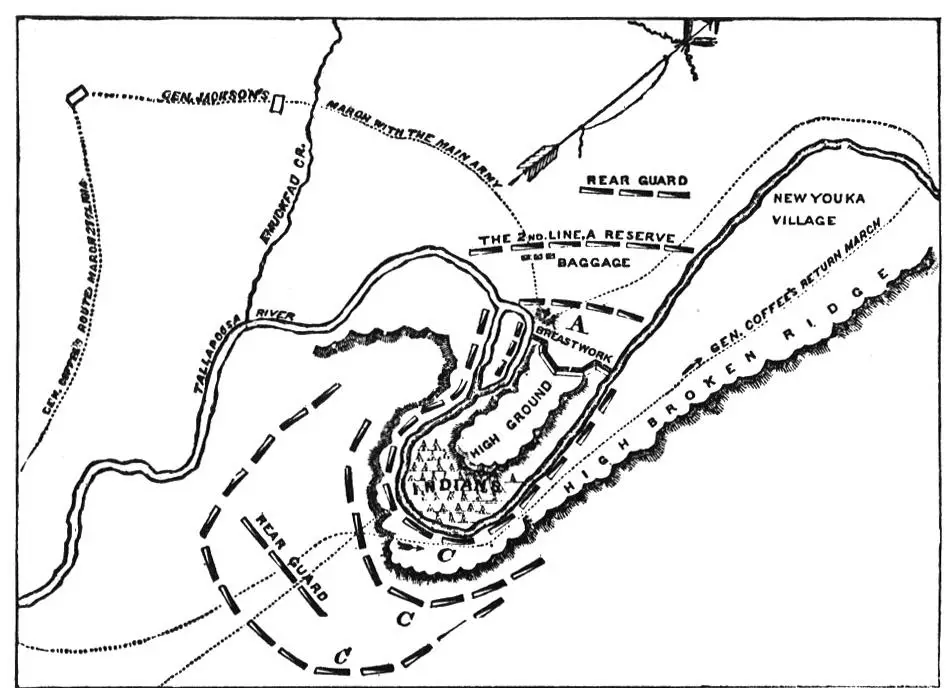When the War of 1812 broke out Andrew Jackson was elected to be the leader of the Tennessee militia. Jackson was eager to fight against the British who he blamed for the deaths of his mother and two brothers during the American Revolution. Jackson's militia was ordered to fight against Creek Indians who were allies with the British and attacking American settlements across the South.
In 1814, Jackson and his militia units were accompanied by members of the Cherokee and Choctaw tribes his forces had grown to 2,600 men. On March 27th, Jackson and his army attacked the Creek forces that were encamped at Horseshoe Bend. Cherokee warriors set fire to Creek buildings in order to distract the Creeks, while Jackson ordered the settlement bombarded from across the river. After two hours of cannon fire, Jackson ordered his men to charge the barricades. Once inside the camp, the battle became a massacre, and all the 1,000 Creek warriors were killed as well as several hundred women and children. After the Battle of Horseshoe Bend, the United States gained 23 millions acres of land from the Creek in Mississippi, Alabama, and Georgia.

In December of 1814, Jackson was sent to bolster the defenses of the port city of New Orleans that was under threat of attack from the British. With the assistance of Jean Lafitte, Choctaw Indians, and the free black population of New Orleans, Jackson created an effective and successful defensive strategy to protect the city. On January 8, 1815, the British launched an attack on the city, thinking that the U.S. troops would flee the battlefield as they had done in previous battles during the war. The Americans were well hidden behind walls and trenches and held their ground during the battle. British had over 2,000 casualties while Jackson lost 8 men and 13 were wounded.
The American victory occurred weeks after the British and the Americans had already signed a treaty ending the war, but it made Jackson a celebrity and a national hero. In the 19th century, a popular engraving of the battle was made and sold across the country making Jackson a household name.

When the war was over, Jackson returned to his plantation the Hermitage. On his plantation, Jackson bred horses, and grew cotton and corn. Over the years, Jackson had made a fortune investing money in selling land recently acquired from Native Americans. There were over 140 slaves on the Hermitage, and Jackson was a slave master that encouraged his slaves to see him as a father, master, and provider. Jackson believed that people of African descent were put on earth to labor for white people. His supporters would claim that Jackson was a true representative of the average American and ignore the fact that Jackson had more in common with the rich planter class than the middle class.
Here is the handout that goes with today's class.
No comments:
Post a Comment